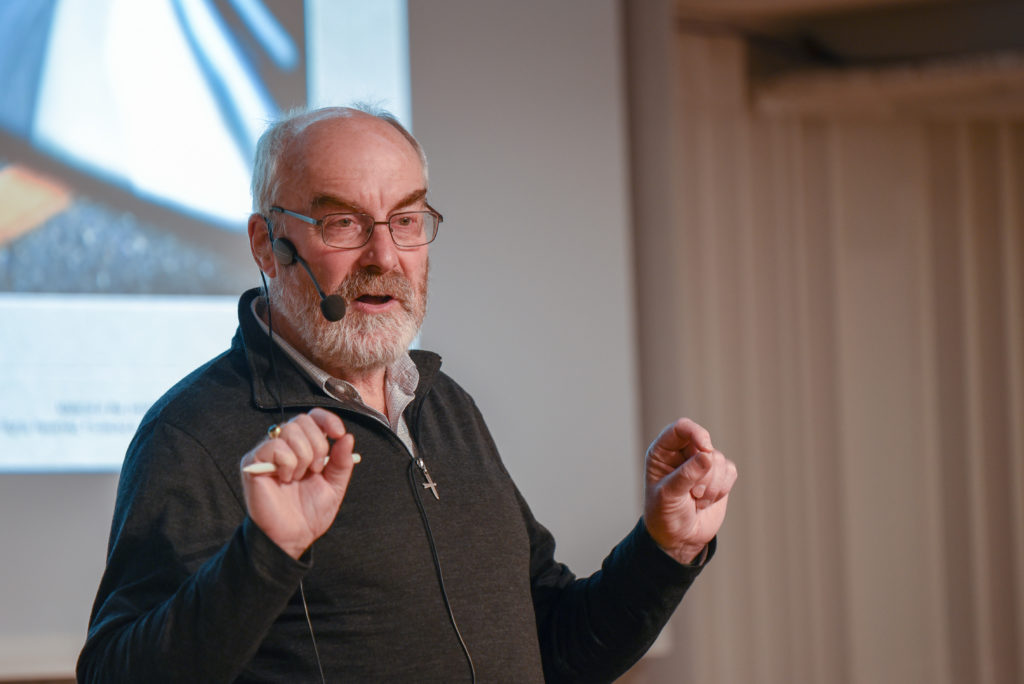Watch the video (5 min) in our LinkedIn post.
– Hi Dave. Good to see you again. For those who don´t know you. Just briefly, who are you?
– Dave Snowden. I run the Cynefin center. And that focus on the application of Natural Science to social systems.
– So why should leaders care about complexity?
– Complexity just is. So complex adaptive systems are an integral part of the world, and they deal with systems where you can’t plan specific goals. It is what we sometimes call the unknowable, unknowables. So basically, a complex system is deeply entangled, it’s highly uncertain, it’s the reality of the world we live in, and then we have to learn to manage in it. But most of our management tools were not designed for it.

– So when, what are the biggest challenges for leaders who are facing this complexity?
– Okay, so one of the key things about complexity, I wrote the European Union’s field guide to managing complexity, so this comes from there. Probably one of the key things about complexity is to understand it’s about networks and interactions. It’s not about people. That’s kind of like a paradigm shift in the way we think about things so, for example, building informal networks across your silos in your organization.
Some of the work we do now is on distributed leadership which is distributed leadership in the processes. Recognizing that you need very rapid feedback loops in very rapid sense mechanisms so that you can dampen failure and amplify success very quickly.
We are in a new paradigm of systems management at the moment.
-Interesting. Focusing on networks rather than people and the distribution of leadership creating feedback loops. So what is the key message you have for leaders facing this complexity?
– There are a couple of big shifts that we want people to make based on the science of systems. Which is in complexity; you start journeys with a sense of direction. Which means you’re open to novelty on those pathways. Your farthest focus on very specific goals and targets because you know the level of uncertainty makes that dangerous.
The second, as I say, is that you focus on interactions between people’s networks on senses. You focus on distributing authority into those networks. It’s actually very little to do with individual quality, so much of the psychodynamics, much of the maturity models stuff. I can see why people have adopted it, but we wouldn’t take that from a scientific perspective anymore. If it is useful for an individual, great, but it is not going to make much of a difference in the system. We can do it far more systematically than we can do on an individual level.
– Okay, great. So I hear there’s a shift from focusing on goals to journeys and direction. And from individuals to networks and systems. So very interesting. So what will people take away if they join your session on the 6th of October in the Leading Complexity Program?
– I’ll probably take the European Field Guide as a basis because then people can download that and use it. There are three things that you need to do to create an organization that is resilient. And the resilience point is a strong one. The resilient organization is able to handle threats and opportunities which we cannot predict. So we build resilience into the system. So there are three things in that.
One is how do you use your employees and your customers, and your key suppliers as a human sensor network to give you a continuous real-time feedback loop so you can spot a weak signal or smaller things early enough to do something.
Second is, how do you entangle people’s connections across silos in the organization? So how do you generate informal networks because they tend to be much more fluid in the way they handle uncertainty? And certainly, during Covid, people fell back to their informal networks because they hadn’t been managed or designed.
The third is in a crisis or when you got rapid uncertainty, what matters is that you repurpose what you’re already good at rather than trying to invent from scratch. For example, IBM dominated the early days of computers because they were the previous world experts on punch card technology for industrial machines. So you need to understand what your organization knows about the level of granularity. This allows you to rapidly take existing competencies and use them for something completely novel. And that’s a fairly structured process that builds resilience into a system that is not so dependent on individuals and more on the collective capabilities of all the people who work for you.
– Sounds very interesting to build resilient organizations to handle uncertainty and be adaptable for the future. So look forward to that on the 6th of October.
– Thanks.
Learn more about our Leading Complexity Program at https://www.leadingcomplexity.com/



